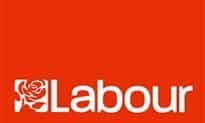Labour manifesto fails to focus on IT
- 13 April 2015

The Labour Party has launched its manifesto for the upcoming general election, promising a more integrated health and care system, but not one that will make more use of IT.
The manifesto, launched in Manchester, says the party will “rescue” the NHS by creating a ‘time to care’ fund paid for by a mansion tax, by repealing elements of the Health and Social Care Act 2012, and by capping the profits that private companies can make from NHS work.
It also says the party will “focus on prevention and early intervention”, “join up services from home to hospital”, improve access to GP services, and give mental health the same priority as physical health.
However, its stated policies for achieving these aims are almost exclusively non-digital. The manifesto makes extravagant promises to invest the time to care fund in staff – “20,000 more nurses, 8,000 more GPs, and 3,000 more midwives.”
In line with its early campaigning, its GP pledges focus on actual appointments – “within 48 hours, and on the same day for those who need it” – and its public health pledges focus on improving activity and cutting the salt, sugar and fat content of foods marketed at children.
The one obviously digital pledge on health comes in a summary section, which says that Labour will introduce “a new right to access talking therapies” as part of its commitment to mental health.
The lack of a vision for a reformed, more digital NHS contrasts with the direction taken by the present government, and with the ‘Five Year Forward View’ launched in October by NHS England chief executive Simon Stevens.
This set out a role for digital services in promoting public health and led to the launch of the ‘Personalised Health and Care 2020’ IT framework, which underlines the role of national infrastructure, IT and data in supporting integrated care.
It also contrasts with Labour manifestos for other, recent general elections, which have been keen to embrace IT as part of a modern, personalised welfare state.
In 2010, when the party’s main pledges were to complete its ‘choice’ reforms, the manifesto also promised a ‘personal NHS’, with both longer GP opening times and an expansion of digital services, including “telephone and online booking via the NHS Choices website.”
Its manifesto also floated the creation of a “new, national 111 telephone number” to “make it easier for people to access emergency services.”
In 2005, its manifesto similarly promised to use “NHS Direct, Health Direct, interactive TV and the internet” to provide “more convenient access to much better information about health and health services, including the performance of doctors and hospitals.”
And in 2001, when the party’s main pledge was to promote the reforms set out in the NHS Plan triggered by Tony Blair’s pledge to raise health spending to European levels, the manifesto additionally promised to give “every citizen a personal smartcard containing key medical data, giving access to their records.”
Speaking at today’s launch, Labour leader Ed Miliband said his party was “ready for power” and that all of its policies could be funded without extra borrowing.
The 86 page, 20,000 word manifesto also focuses on improving childcare, banning zero-hours contracts and raising the minimum wage to £8, and cutting university tuition fees in a package of measures aimed at “working people.”




